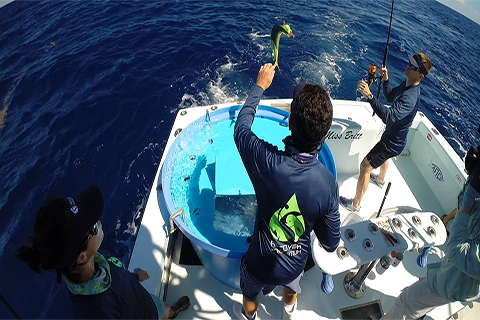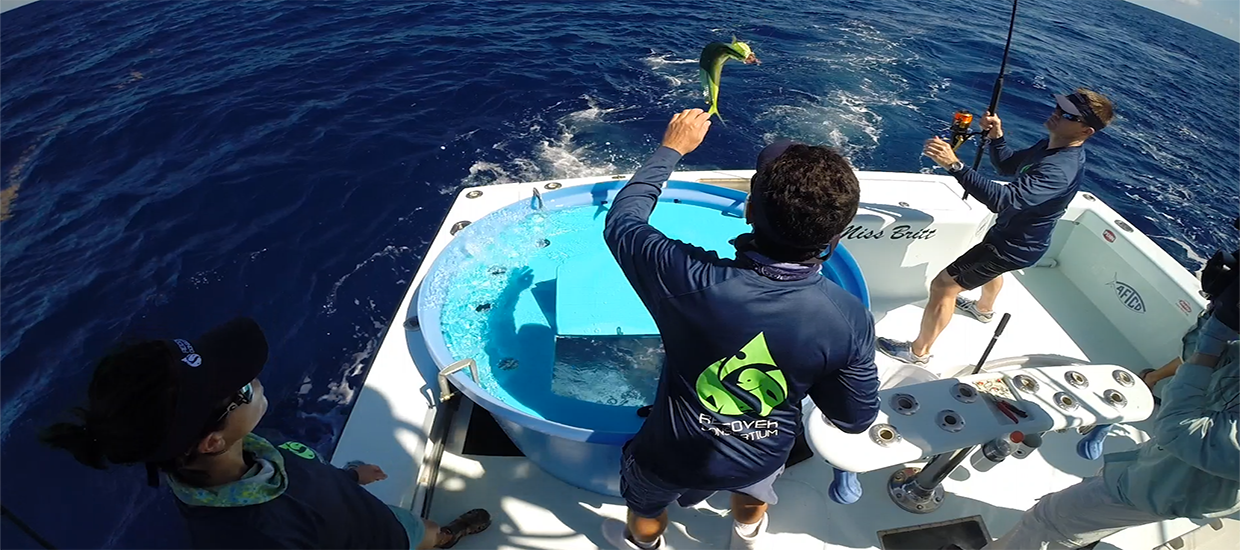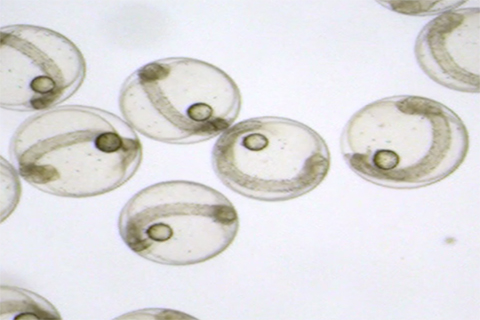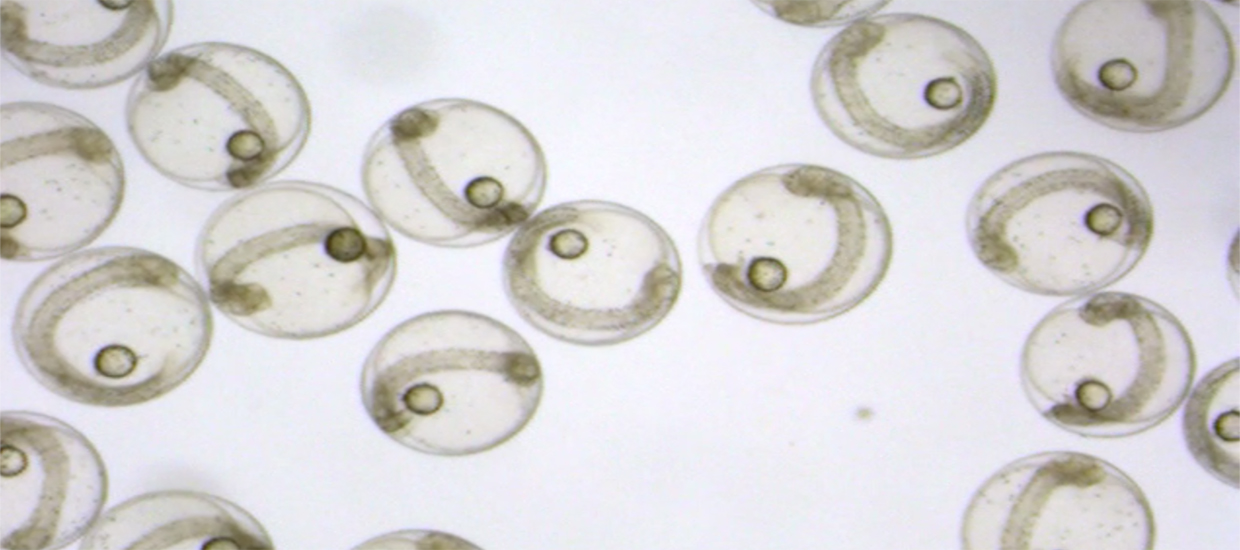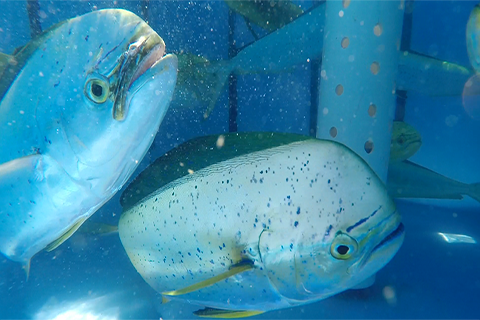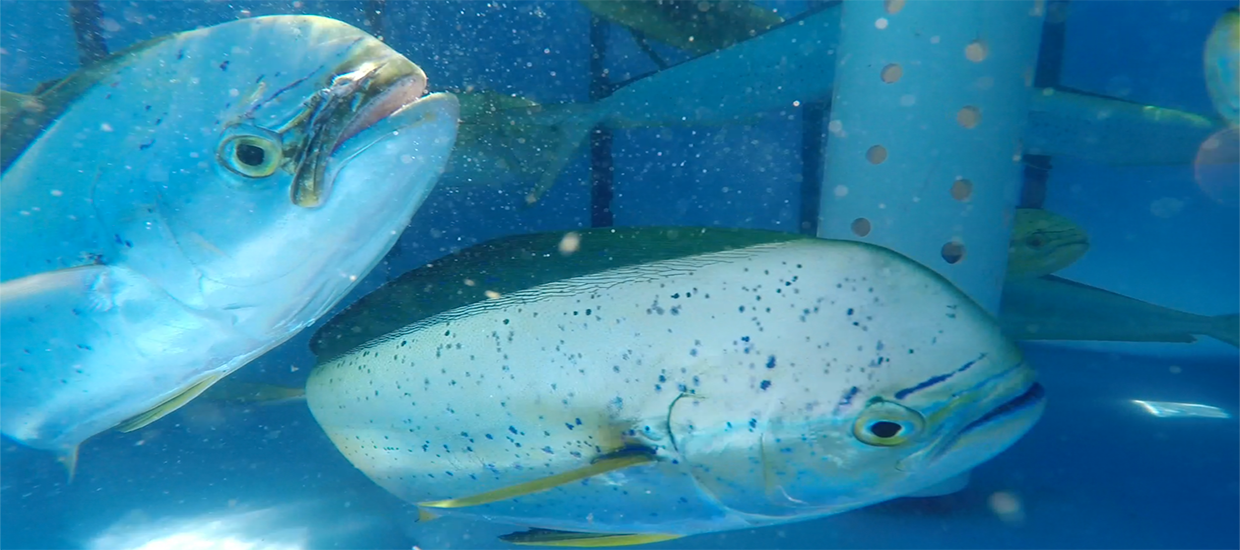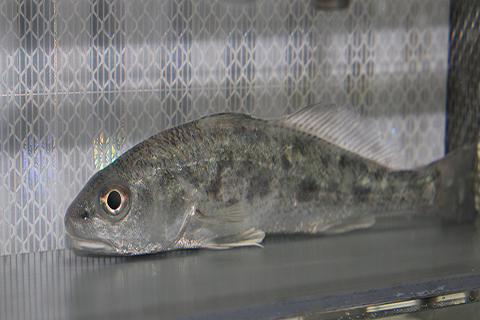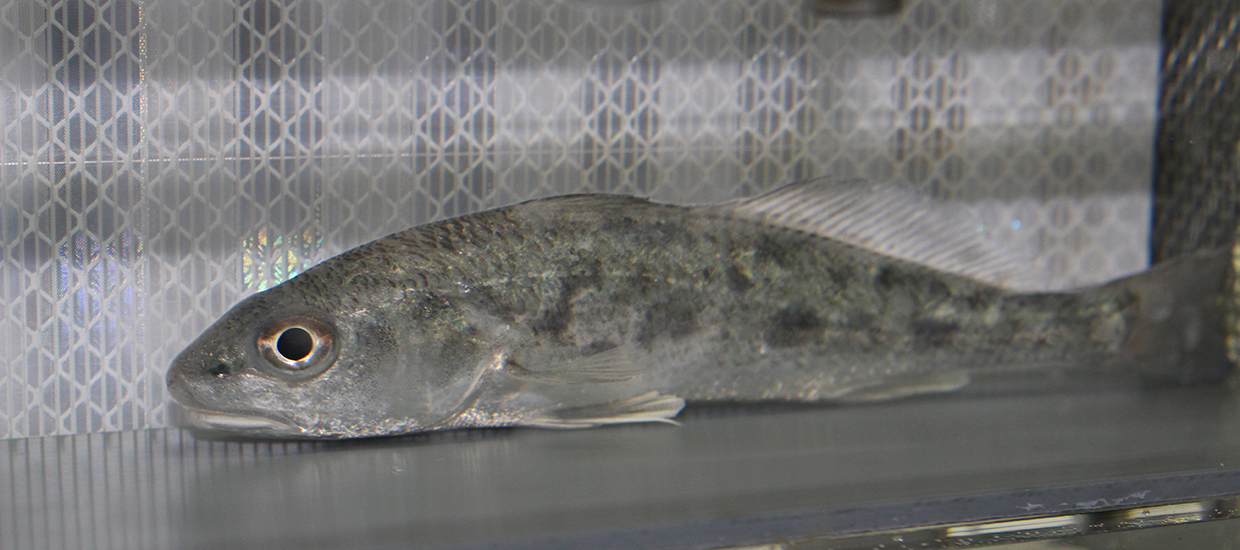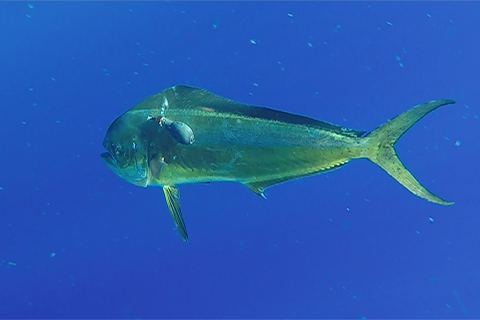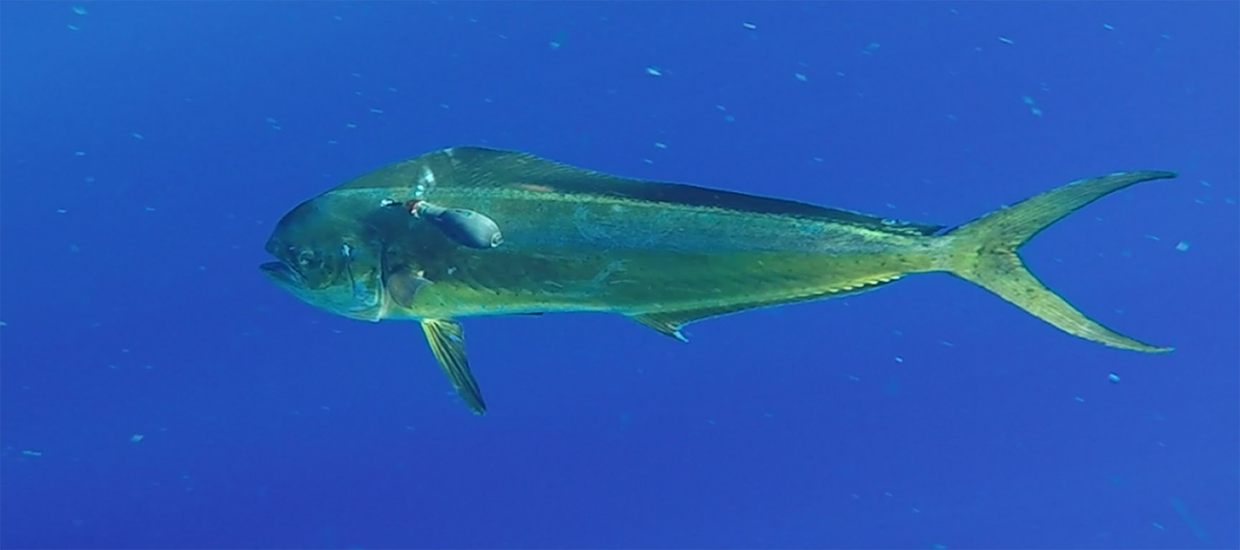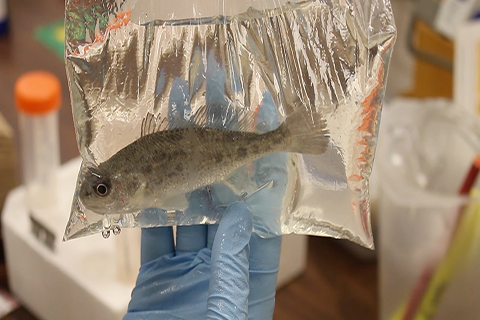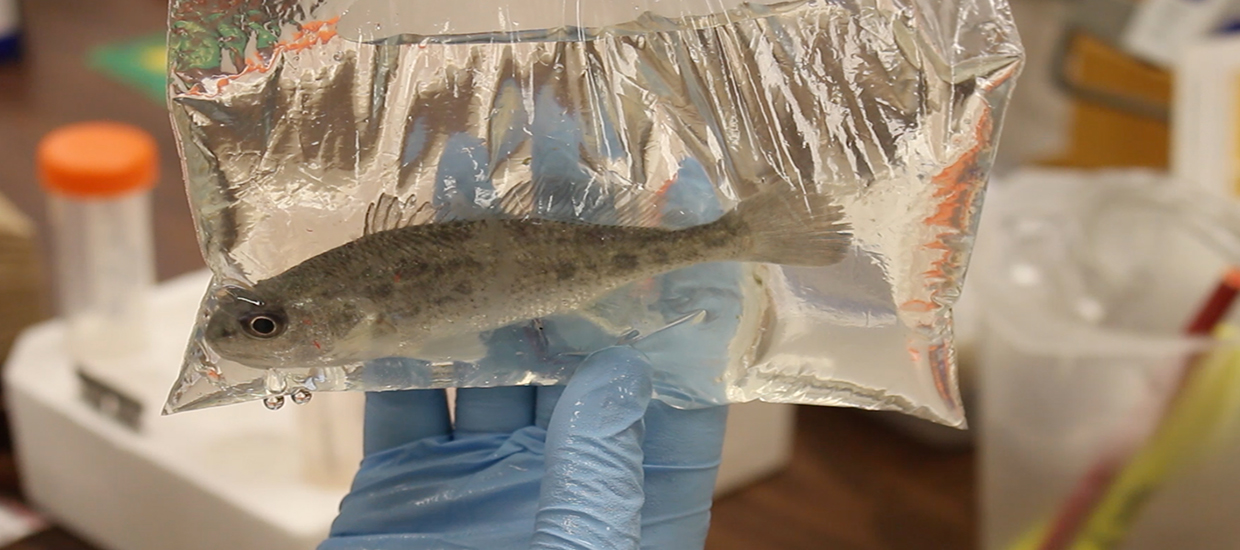RECOVER (Relationships of Effects of Cardiac Outcomes in fish for Validation of Ecological Risk) is one of 12 research groups awarded grants totaling 140 million by the Gulf of Mexico Research Initiative (GoMRI) — a 20-member independent research board created to allocate the $500 million committed by BP for independent research programs following the April 20, 2010, Deepwater Horizon (DWH) oil spill.
The spill spanned 87 days during which approximately 4 million barrels of crude oil were released into the northern Gulf of Mexico; making it the largest marine oil spill in U.S. history.
RECOVER scientists are examining the detrimental effects of oil on two ecologically and economically important species of fish in the Gulf of Mexico: mahi-mahi and red drum.



